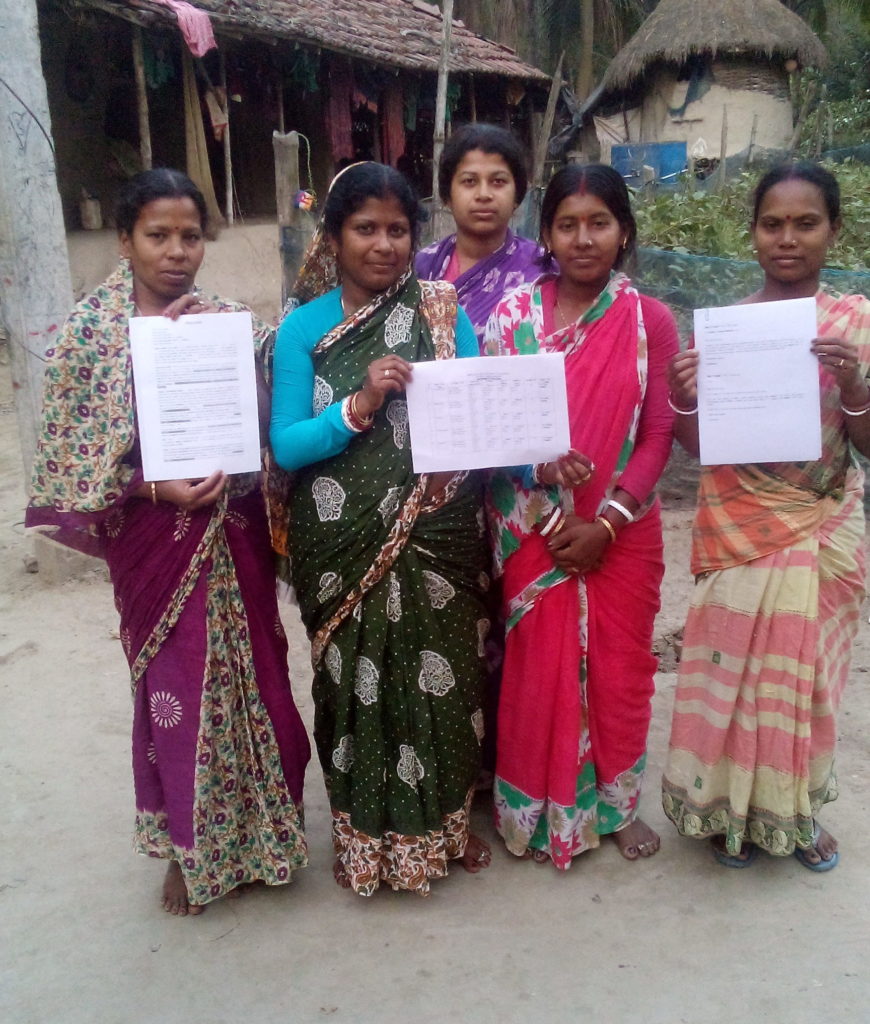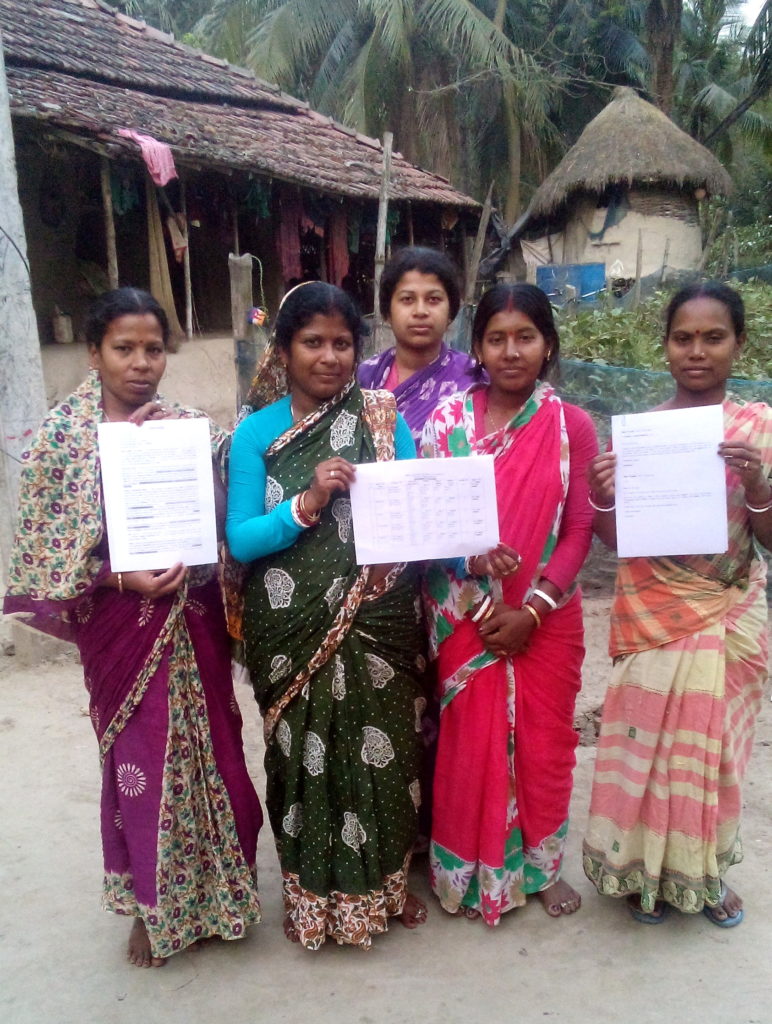Women’s Struggle for Water
Barrackpore, West Bengal: Women in rural India are responsible for finding and fetching water for the family. They walk miles, carry heavy burden, wait for hours sometimes or have to pay exorbitant price for water. The task of collecting water for a family on a regular basis is back- breaking, and consumes one’s energy and time. Since lack of water affects women most, the women in Durgavati village which has about 200 house hold in South 24 Parganas, West Bengal, decided to come together to resolve their drinking water crisis.
The existing Women’s group known as MAM (Mahila Adhikar Manch) has been formed with the guidance and facilitation of DBSS Barrackpore. MAM has been trained on human rights, women rights, women empowerment, drinking water and sanitation and other social issues. Through all these trainings, the MAM members are empowered to address issues like violence against women, any social evil which hampers the integrity of their community and they are the driving force behind to influence their family and community towards better living. MAM is an empowered women’s group that work for the benefit of women and the community at large. They have come together to discuss and find ways to bring solution to the water crisis in their village.
The community in Durgavati village have been struggling for drinking water for a very long time and it becomes worse during the summers. They have two tube well at present, one is contaminated by iron and the other is around a kilometer away, women in the village have been spending countless hours just to provide this basic necessity for the family, and they have also been purchasing water from the market for Rs. 30 per barrel, which puts a toll on the small income of the family. Thus, the MAM took up the issue of drinking water issue in February 2015, they approached the local ward member to request for the installation of hand pump in their village and they were assured that the hand pump will be installed very soon. But, when no action was taken, 25 MAM members went to the block president in June 2015 and submitted the memorandum demanding for drinking water facility; the block president assured them that drinking water facility will be provided only by 2017 as there are other work that needs to be done.
The MAM members were disappointed that they have to wait for so long, MAM and Barrackpore DBSS staffs held a meeting and they decided to take their problem of drinking water to the local Member of Legislative Assembly and ask for his help. The MLA asked them to submit the land record of the village to process the hand pump installation. But the Secretary of District Panchayat gave the land record of his own village without the knowledge of the MAM members. The hand pump was installed in November 2016 in his village which was again around a kilometer away from Dirgavati village.
The MAM with Barrackpore DBSS staffs called for an emergency meeting when they realized what happened and around 50 MAM members gathered together and marched to the District Panchayat office and did not allow the Secretary to leave his office until the issue of water was taken up. The Secretary apologized and assured them that their will be taken up as early as possible. He mentioned that the next sanctioned work is to construct the road of their village and only then the hand pump can be installed. Considering the need of the community, the members of MAM agreed to proceed with the construction of road of priority. Subsequently, the road connecting the village to the main market for approx. 1.5 km was constructed and the installation of hand pump is in pipeline. The community members were very happy with the road construction and they are waiting for installation of hand pump.
The tireless joint effort of Barrackpore DBSS staff and MAM members showed them that together they have a strong voice with which they can negotiate their needs. The zeal to address and resolve their own situation has brought positive change in the community. Their efforts have brought them one step closer to ending the village’s water crisis, but there is still many more miles to go.





